Here are five things to be optimistic about in 2022

How do you feel about the prospects for 2022? Despite the arrival of the Omicron variant of COVID-19, people around the world are feeling surprisingly positive about the new year, according to a global survey.
Ipsos asked over 22,000 adults in 33 countries to give their personal predictions for 2022. Although concerns persist about rising prices and the environment, most people felt things would be better in the New Year.
“Hope springs eternal,” said Antonia Lopez from Ipsos. “As is normal, three quarters (77%) expect a better year in 2022, ranging from 54% of Japanese saying they are optimistic that 2022 will be a better year for them than it was in 2021 to 94% of Chinese.”
When people were asked at the end of 2020, 90% said it had been a bad year for their country. Responding to the same question at the end of 2021, the figure had dropped to 77%. In 2021, 56% said it had been a bad year for them and their families compared to 90% in 2020.
New Year resolutions remain popular, with three quarters of people globally planning to set a goal for 2022. Only in Japan (44%) and Sweden (23%) are people setting resolutions in the minority.
Here are some of the reasons why people around the globe say they are optimistic about life in 2022.
1. Progress in the fight against COVID-19
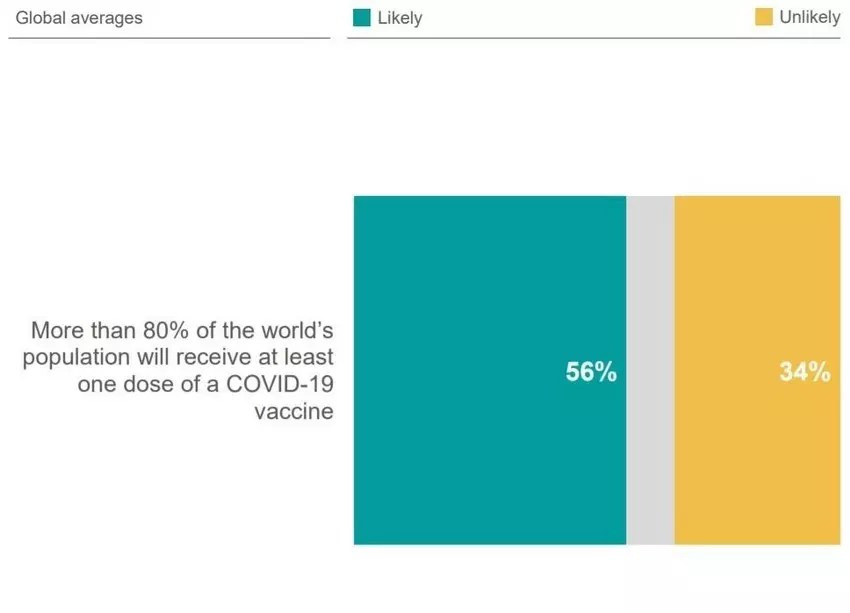
COVID-19 is not an obvious cause for optimism, but the progress of vaccination programmes is giving people hope that things will improve. More than half of those questioned believed that over 80% of the world’s population would receive at least one dose of a vaccine in 2022.
People in Latin America were most positive with 81% of Peruvians, 76% Brazilians and 69% of Chileans expecting vaccination success in 2022. Europeans were more sceptical. Just 42% in France thought the 80% target was achievable, 38% in Switzerland and 33% in Germany.
2. The environment
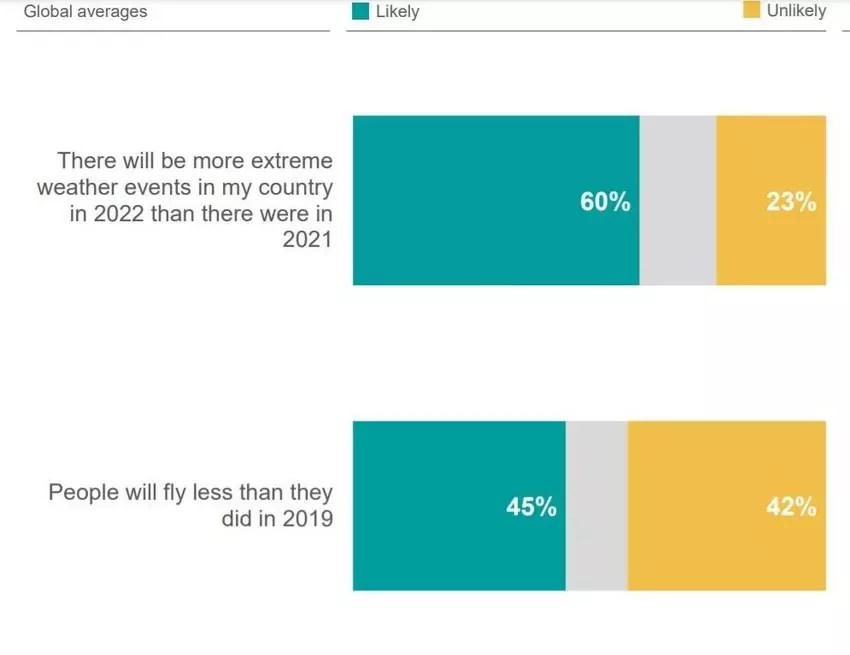
Although people around the world expect extreme weather events caused by global warming to intensify in 2022, especially in those European countries badly affected by flooding in 2021, there was more optimism about the readiness of people to take action to halt it.
More than two fifths (45%) expect fewer people to fly in 2022 than in 2019, with those in Asia expressing the strongest view that habits will change – 68% in China, 67% in Singapore and 66% in Malaysia.
3. Society
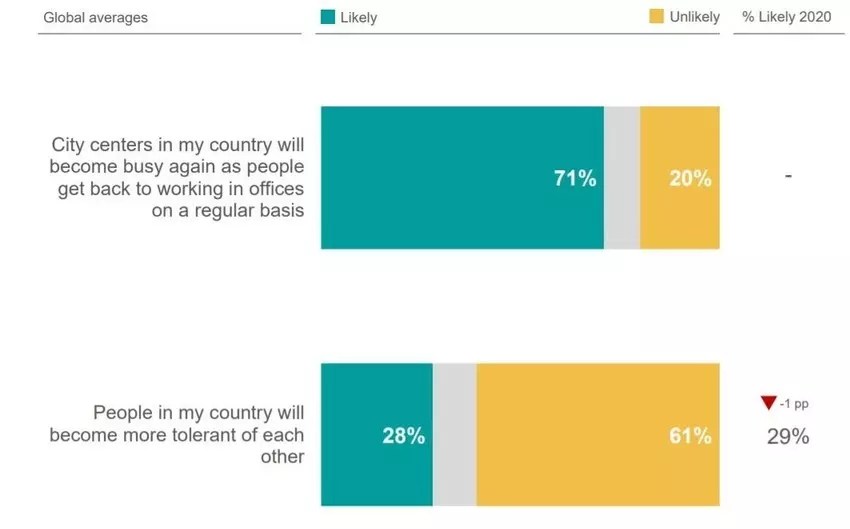
Almost a third of people around the world expect their society to become more tolerant as a result of the events of the last two years. This feeling is strongest in China, where 83% expect increased tolerance in 2022 although only 9% of people in France agree.
More than seven in 10 (71%) think city centres will become more vibrant as people return to working in offices in 2022. Nine out of 10 (87%) people in China say this is likely to happen as do four in five (78%) in Argentina, Brazil and Colombia.
4. The economy
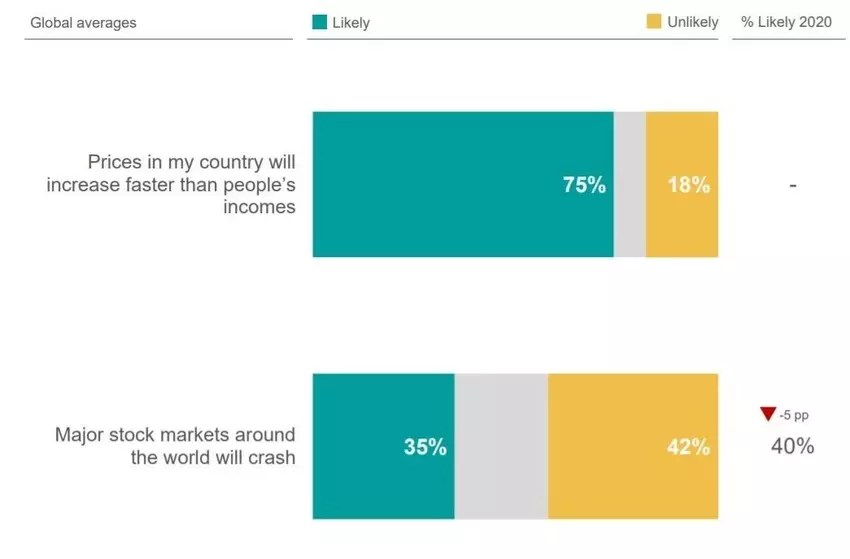
Optimism about the state of the global economy is picking up. People have greater expectations for stock market stability in 2022 than they did in 2021, when 40% said major stock markets around the world were likely to crash.
Although three quarters of people around the world expect prices in their countries to rise faster than incomes, over two fifths (42%) think a stock market crash is unlikely.
5. Alien invasion
Of course, there’s still plenty to worry about in 2022. But according to the survey, alien invasion is not top of most people’s lists – only 14% thought it was likely although almost a third of people in India are expecting to greet visitors from another planet.
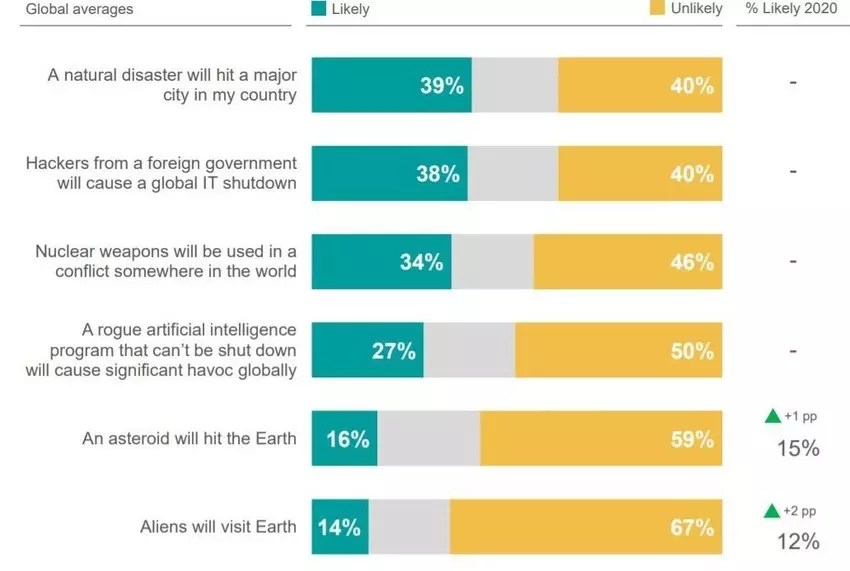
Meanwhile, 39% of people say they expect a natural disaster to affect a city in their country, 38% thought hackers from a foreign power might bring down their IT systems, 34% thought nuclear weapons might be used and 27% feared rogue artificial intelligence.
Republished with permission of the World Economic Forum. Read the original article.





